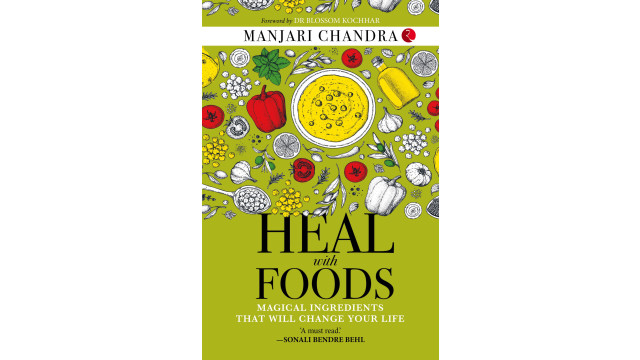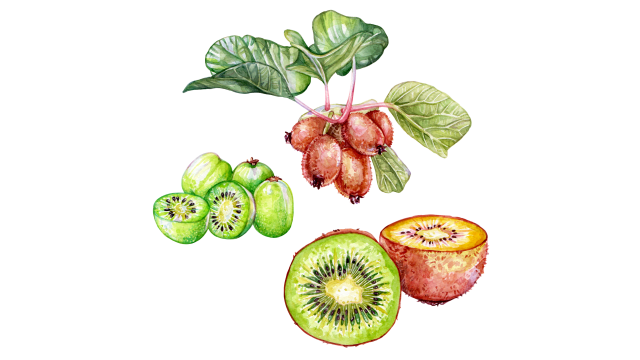Food as Medicine

Hippocrates, hailed as the father of medicine, proclaimed, “Let food be thy medicine and medicine be thy food.” Fast-forward to the 20th century, and the adage “You are what you eat” adds heft to the fifth-century BC Greek physician’s words. The concept of using food as medicine dates back centuries and is familiar to many ancient cultures and civilizations.
Mark Hyman, family physician and author of Food Fix, says, “Food is literally the most powerful medicine we have available to control our health. When we choose to eat quality foods, we gain a whole host of benefits.”
Diet and Lifestyle
Modern lives are often characterized by sedentary lifestyles and a heavy dependency on processed foods. This hampers the role of nutrient-dense foods in contributing to our health. Poor health habits, like smoking, alcohol consumption, lack of exercise, and an unhealthy diet, affect individual wellbeing.
According to the UN Chronicle, lifestyle diseases are an economic burden, as they affect a significant number of the population and impair optimum functioning as healthy individuals who contribute to society. Nadia Mahmud, a registered dietitian nutritionist at Roundglass Living, says, “The association between what we eat and chronic diseases, such as heart disease, type 2 diabetes, and obesity, is well-known with heart disease being the number one killer worldwide.”
The high levels of processed foods and trans fats in the standard American diet have raised valid concerns. Research has shown that diets heavy in saturated and trans fats, added sugars, and high sodium lead to inflammation. Such diets can adversely impact cardiovascular health, cause type 2 diabetes and hypertension, and impair gut health and sleep. This has health workers, food scientists, dietitians, and nutritionists focusing on the many anti-inflammatory whole foods that could serve as preventive medicine against various chronic diseases.
Krystal Mack offers fire cider, “the people’s medicine.”
A Prescriptive Model
The concept of food as medicine is based on the principle of integrating diet and nutrition for optimum health and prevention and treatment of certain medical issues.
According to the American Academy of Family Physicians, many family physicians are realizing that “prescribing food as medicine lowers weight, blood pressure, and blood sugar.” These doctors recommend cooking and eating foods that help nourish our bodies and prevent or reverse health issues.
By optimizing the right kinds of foods (for example, adding more whole foods such as vegetables and fruits to one’s diet), we can reduce risks of autoimmune conditions and a high BMI (body mass index). The right kinds of foods and the appropriate way of eating could help boost immune function; enhance mental wellbeing; prevent issues like obesity, high blood sugar, type 2 diabetes, and inflammation; and support safer pregnancies and longevity.
According to the U.S. Department of Health & Human Services, “about half of all American adults—or 117 million individuals—have one or more preventable chronic disease[s], many of which are related to poor-quality eating patterns and physical inactivity.” While medical intervention is needed for many critical health issues, the concept of food as medicine is seen as a preventive way to avoid health problems that are associated with noncommunicable diseases and are a result of poor dietary choices.
A Wholistic Concept
Don’t shy away from the term medicinal foods. These are functional foods with a whole lot of nutritional benefits that serve to boost health without compromising on taste and “are taken as part of a normal food pattern,” according to Advances in Pharmacological Sciences. What’s more, you are sure to find some of these foods in your crisper drawer or pantry. Here are some plant-based medicinal foods that are high in antioxidants, bioactives, and adaptogens to add to your daily diet.
Spices. With their antioxidant, antiseptic, digestive, and carminative (gas-relieving) properties, spices are aromatic healing elements that add flavor and taste to your food. Including turmeric, cinnamon, nutmeg, garlic, and cloves, a whole world of spices can be added to your food in a variety of ways to help keep inflammation at bay.
Fruits and berries. Add various berries (blackberries, strawberries, raspberries, or blueberries) and other colorful fruits (like apples, bananas, papayas, and citrus) to your diet. Fruits are high in fiber and offer essential vitamins and antioxidants for building immunity, reducing inflammation, and preventing cardiovascular issues.
Vegetables. Leafy greens (kale, spinach), cruciferous vegetables (broccoli, cauliflower), mushrooms, colorful peppers, root vegetables (sweet potatoes, carrots, beets), and sea vegetables (like kelp) are low in calories and high in antioxidants and phytonutrients that help build immunity and curb nutrient deficiency. “Many also help activate various detoxification and anti-inflammatory genes that can help reverse or prevent various chronic diseases,” says Mahmud. Dried herbs (like ashwagandha) also have thermogenic (heat-producing) properties that alleviate stress by improving cortisol levels, and fresh herbs (like basil, mint, or rosemary) have many antioxidant qualities and are used in traditional medicine for their medicinal attributes.
Nuts and seeds. The body needs good fats to control inflammation and promote cellular healing and hormone production. Include omega-3 fats from walnuts, coconuts, almonds, pumpkin seeds, chia seeds, and flaxseed in your snacking routine to support heart health and cognitive function.
Beans and legumes. Rich in micronutrients, beans are a good source of plant-based protein and fiber to help maintain blood sugar balance and cholesterol levels. Chickpeas, lentils, peas, and soybeans offer protein, folate, manganese, dietary fiber, and resistant starch.
Cacao hemp smoothie bowl by nutritionist Mariam Begg.
It would be right to say that food as medicine has taken center stage in the pursuit of Wholistic Wellbeing today. Work toward making the right eating choices. That way, food becomes our best ally in the quest for optimal health.
Key Takeaways
- Food as medicine links health and diet.
- Choose nutrient-rich foods for health.
- Antioxidant foods boost immunity.





